Parenting: Discipline
“Discipline,” that’s a 200-pound-gorilla-in-the-room topic if I ever heard one!
These days the so-called “do-gooders,” “haters” and “conspiracy theorists” all over the internet have made poor parents fear even the word “discipline”… let alone actually giving it to their child. But “discipline” is different than “punishment” you know.
Parenting includes discipline and “natural consequences” are the best
There are not a lot of absolutes in the practice of medicine; but, one thing I can tell you with absolute certainty is that “I don’t know everything!”
Even in a single topic like discipline I still see new things… BUT, I already have seen a lot.
I’ve seen 17-year-olds who have a mutually respectful relationship with their parents that would rival Mother Theresa and Mahatma Gandhi and I’ve sat by a 4-year-old “brat” in church who was “holy hell”—on everybody, not just her parents and the only thing her parent could think to do was keep apologizing to me.
I knew well a 15-year-old being raised by his grandparents as sort of a “last chance” before lock-up; and a 14-year-old both saving for college and paying for her parents house with the earnings from her business started as a middle-school science fair project.
I’ve seen parents struggling to raise children with Down’s syndrome, AIDS, epidermolysis bullosa, cancer, sickle cell, hemophilia, diabetes… you get the picture; some seemingly with no difficulties, others with no success and most with every level in-between.
I’ve cared about all of them, liked nearly all of them and for some felt parental feelings of love as I’ve gotten to know them and their struggles.
Discipline
Punishment Is Not Discipline, and Vice Versa
As often as it is used and iconic as it has become, “standing in the corner” and the like is punishment and only a sort of “stand-in” for discipline in cases where discipline isn’t quite possible… yet.
It might be useful and necessary some times to “get their attention”; but perhaps the true discipline comes in the quiet discussion afterwards between a now-attentive and humble child and the grateful-for-the-teaching-moment parent.
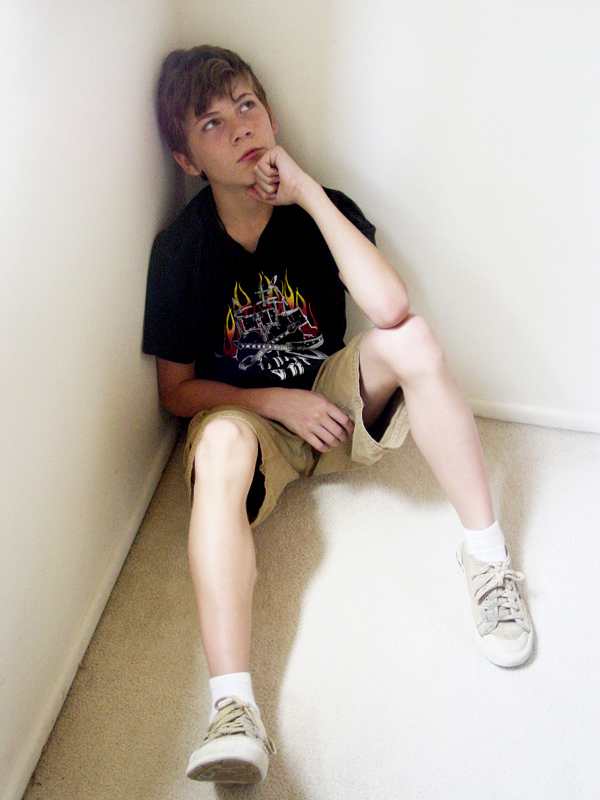
That’s discipline: the moment of enlightenment between parent and child where an important life-skill is truly (and perhaps finally) understood, even if it means deference and limitation, within the context that it is done because you truly care about them.
And sometimes, it can occur completely without punishment!
A parent who is so afraid of harming “that poor tender little soul” or “damaging their free will” that they cannot even set any limits, is listening to the wrong advice; and, setting both themselves and their child up for: at best—a life of underachievement and at worse—incarceration.
WHY CAN’T SOMEBODY JUST TELL ME HOW TO DO IT?!!
No offence, but if you have to ask that we’ve really got to have a talk. There are at least three major reasons NO ONE (even those know-it-alls on the internet trying to sell you their book) can tell YOU specifics of how to discipline YOUR child specifically.
I’ll give them to you, but it’ll be blunt because I want to get onto the real point of this article.
First, YOU wouldn’t listen—nobody would sit still for the year-long lecture on discipline covering every type of kid multiplied by every type of parent multiplied by every type of circumstance!
Second, it’s exactly what Harry Potter told Hermione about teaching defense against the dark arts: the moments of enlightenment are fluid, dynamic and (most importantly) grow out of the circumstances—which only you and the child will know at the time.
And, the Third reason I’ve already given you—we don’t even know all the answers to tell you.
Only a fool, and those wanting to sell a book, thinks they can have answers without knowing very specifically every kid, every parent and every circumstance!
How Did We Get Here?
We weren’t always the way we are now with kids—less capable, more disrespectful, feeling entitled and in need of so much “protection.” Books of my era (which seem to be hidden on the back shelves of library’s now) were full of childhood examples we could emulate. Ulysses S. Grant was running his family farm in his parents absence as a TEN YEAR OLD!
George Washington, Thomas Jefferson, Ben Franklin, James Madison and on and on… all had life experiences and skills for which they would be considered “prodigy’s” today but back then was just considered the normal growth and development expected in a smart child!
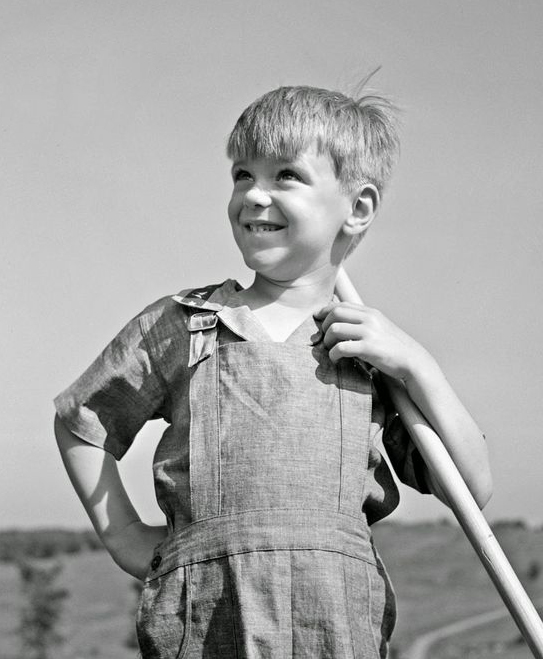
American children once enjoyed unbridled freedom with adult-level responsibility. They were expected to do things and when they complied were given independence.
However, we must remember that the “default culture” children were turned out into back then, when adult oversight was withdrawn, was basically: hard work, perseverance, consideration of others and respect. These were the goals and attitudes used for emulation.
The world got “larger,” industrialization hit, avarice led to exploitation. Then, about the time of the civil war, a round of legal protections for kids limited their use as laborers and factory workers plus systematized education.
Public health advances decreased death rate and parenting literature proliferated advising the investment of “new-found time” given by the many labor-saving devices into obtaining the “ideal childhood” for their children… which they also began describing.
Slowly, through the 19th and 20th centuries that investment grew. An entire new stage of life was invented, adolescence, delaying when a child was considered an adult.
Then, it was noticed that growth and development had changed to allow a new definition of adulthood: “young adulthood” which lessened expectations for the college ages and legitimized even longer supervision.
Recent Changes in Parenting Styles
Insidiously, the past 30 years or so, authority has seemed to shift from parents to children in many countries. Activities with peers displaced family activities, they often choose what the family eats, their own social media, their bedtime and schools.
At the same time, demographics show them to have become less physically fit, less resilient, more anxious, more depressed and overall far more “fragile.” Parents are less sure of their roles and seem rather to aspire to being their child’s “best friend” or “most trusted confident.”
Somewhat unique to America are difficulties with respect, carrying “overscheduling” to an art form and what has been called the culture of: “live for now.”
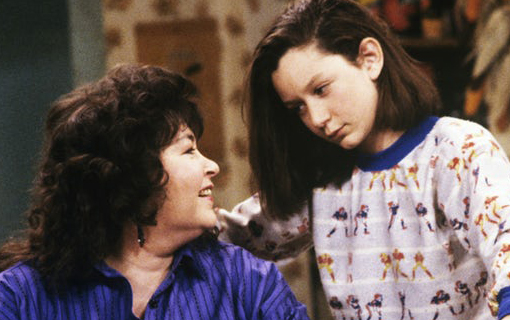
Disrespect: To many, the media saturating our lives is the obvious culprit in the climate of disrespect. Perhaps at some distant time it was the discordance of what was expected in real life and a disrespectful remark of a television child that made us laugh, even though with some uneasiness.
Today, an absolute requirement of a sitcom is having a disrespectful child character so writers can fill their mouths with (let’s call them what they are) smart-ass remarks any time they need a cheap laugh.
The absolute saturation of the entertainment market with such cheap gags is so ubiquitous that it has become the “background” morality of child-rearing.
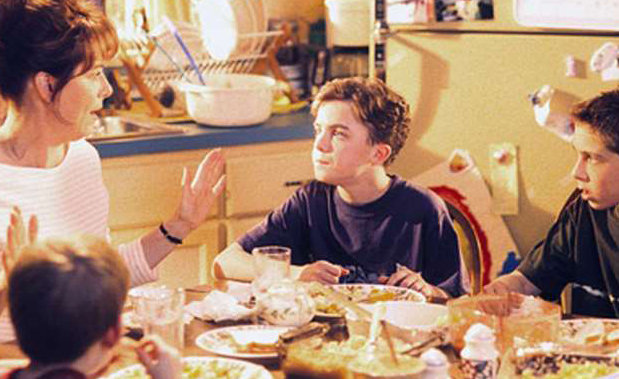
It seems to have become “cool” for children and teens to disrespect parents and adults in general. Every generation challenges the authority of elders almost as a part of maturing into adulthood; but, at least in American culture today, our kids have obtained “writers” to borrow their disrespectful dialog from which has become pervasive and destructive.
According to the media, disrespect is not only common for affluent children, telling their parents to “shut up” is fashionable.
Overscheduling: In the US, at least for many, being “overscheduled” for their kids gives “bragging rights.” Parents in most countries are busy and have been throughout time. I’m sure it’s even come up in conversations and obtained commiserations.
Unfortunately, I’ve heard some of those conversations in the U.S. almost carry into an art form. Some parents almost routinely brag and boast about how busy and overscheduled they are. To me, that’s simply not healthy… is it?
Live For Now: (Not the Good Kind)
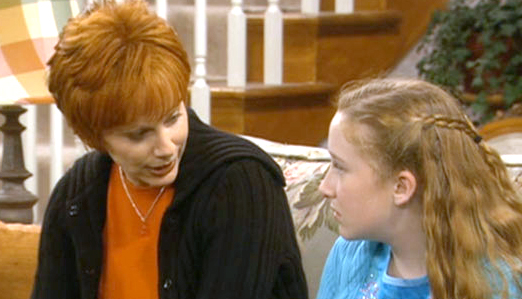
It seems that here in the U.S. there is a “double-whammy” (perhaps even “triple”) with a culture of disrespect living along-side what is advertised as the “live for now” philosophy that Pepsi/Beyoncé would love our kids to live.
Children in the U.K., New Zealand Australia or the like are able to look at the billboards pushing this slogan and see it as a self-centered and destructive American import they can choose to reject; BUT in the U.S., “live for now” looks like it has become the “default culture” kids will absorb if set loose to navigate without adult direction.
Stranger Danger
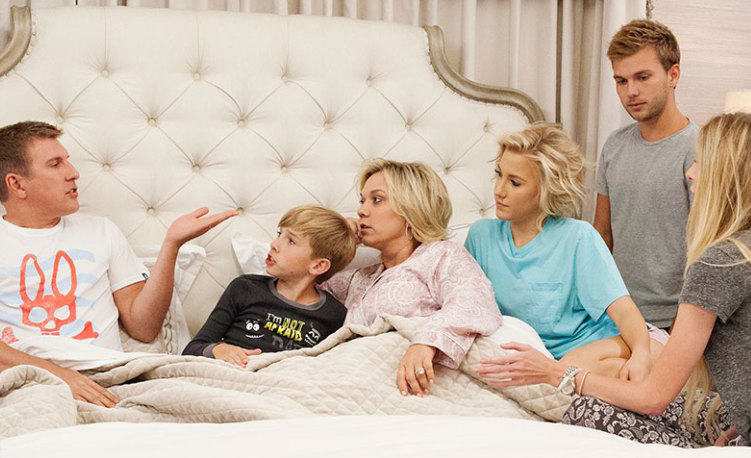
Couple those two (disrespect and live for now) with the “stranger danger” admonishments this generation has fully grown up with, and it’s hard to tell which one causes the other.
We all know the social ill that teaching all young children the danger of strangers is designed to prevent; and arguing against it is fraught with backlashes that none of us want to endure.
As such, it should come as no surprise then that a child so taught and who, at the same time doesn’t have adults to provide commensurate empathy and other social skills appropriate to each progressive age, assuredly produces children who have absolutely no use for others. In other words: disrespect and live for now.
That’s how we got here. Unfortunately, merely knowing it doesn’t either help you discipline your children or make things any better.
Four Discipline “Traps” to Avoid
Like I’ve done before (Immunization, ADHD), I’m going to refer you to the expertise of my “brother from another mother” colleague, Dr. Greg Barrett, who’s written about some personal experiences. And I’m going to converse with him a bit about his topic in part two of this series about discipline.
Before ending part one however, I CAN give you at least four things to be pondering about before part two is published: Four “traps” to avoid.
In the topic of discipline, you see, it’s a whole lot easier to tell you what NOT TO DO than it is what TO DO… A whole, whole lot more! But keep in mind these are only four—there are a few more.
Trap 1: Not following through on consequences
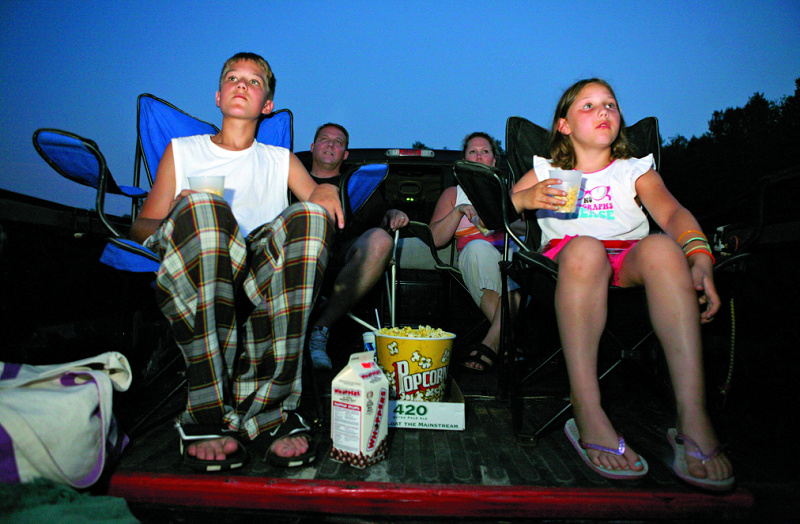
An example: I found one on the internet which serves fine here: Warn your children several times in an increasingly threatening manner that if they don’t stop (whatever) you won’t take them to the show tonight with the family—and they don’t. Then, dad comes home with his heart set on spending the time with the family like you forgot you told him you were going to do. So, you recant and tell them you’ll go “but you can’t have popcorn”; however, you get hungry and get popcorn anyway.
Huh?: You’re taking the least onerous path here, for any number of reasons. Mostly, you’re not thinking through the consequences BEFORE you voice them and not choosing consequences which effect only the child.
Better: Give yourself a “timeout” and leave the room (pull the car over and get out) before you announce the consequence. Or even delay the “announcement” of the punishment until you can discuss it as parents.
That will create a “pregnant pause” that can not only give you to time to think through a more “surgical strike” at consequences; but, just as likely, you will find the “little sweethearts” much more receptive when you get back after having time to ponder “oh crap, we’ve done it now!”
Trap 2: Asking for cooperation rather than insisting on it
An example: You politely ask your 7-year-old to help you pick up her room and carry her dirty clothes to the washer. She rolls her eyes at you and whines “that’s not my job!” Stunned, you ignore her defiance and do it yourself.
Huh?: For fear of being the “bad guy” or harming their “free will” you forget you’re talking to a child. As a result they don’t take you seriously then don’t understand why you’re upset.
Better: Listen to me! It’s OK for you to be the parent! You’re trying to coordinate, navigate and keep the circus running. Standards and expectations are what parenting is about. Just because you set expectations and enforce rules doesn’t make you a dictator; it makes you effective parents.
If you still aren’t up to directness, it’s mission critical to at least be clear and direct and speak in options. “I need you to help me…”, “do you want to carry the clothes or pick up the toy’s?”, “do you want to go to bed with your light on or off?”
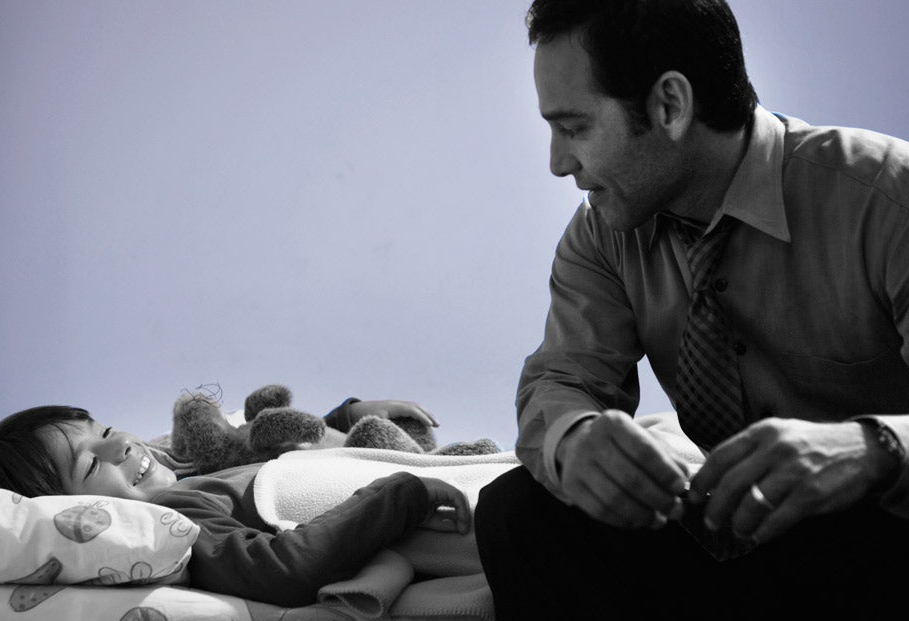
Also keep in mind what it’s like to have a day full of spontaneous requests. Setting routine times for helping as much as possible is much more effective. Less chance of being put out by unexpected demands and makes them feel respected.
Trap 3: Letting your child bend the rules
An example: By the age of eight your too-smart-for-her-own-good daughter has a ready excuse for everything she’s supposed to do but dislikes; like, “don’t forget to carry your dishes to the sink”—”I’ve got to finish my reading chart.” The chart is something you want her to do so you let her ‘bend’ a house rule.
Huh?: By the time they’re eight you’ve already fought the good fight long enough to be weary of the battle. You choose battle-fronts warily and love to do whatever it takes to keep the peace—even if it means letting a child call the shots. “one more show” becomes “let me just see what’s going to be on next week.” Another of your goals is to teach them to speak with adults in a calm rational manner so you think “I should just give a little.”
Better: Enough is enough. By now you also should realize that it’s HER (or HIS) job as a “smart little kid” to test just how far they can go—with EVERYTHING! Choosing between two snack options, or between two movies to watch, or what flavor of frosting on his birthday cake is one thing; but not being consistent with family rules (which should have already been made with thought and consideration and apply to everyone) has much more at stake. Bending in a unique, special case is also one thing, but letting it become a habit (which it is as soon as it reaches more than once with a child) is entirely another.
Keep directions clear and simple so as not to leave room for debate. Post them if necessary. Don’t get drawn into a negotiation. “One show, that’s it”—and turn off the television.
Trap 4: Trying to keep your child happy at all costs
An example: You’re in Walmart with your 5-year-old when she pitches a fit because you said “no” when she reached to grab a chocolate chip cookie. The smart thing would be to just leave the store. The good parenting thing would be to just leave the store. The looks on the faces of every other adult within earshot tells you to “just leave the store.” Instead, you attempt to pacify her by reasoning that you’ve already bought her favorite candy that “you can eat in the car.”
Huh?: Habits for dealing with stress and disappointment come very early in life. True, when your child is hungry or tired they’re more likely to have a meltdown; and sometimes we put our kids in positions we shouldn’t (like running errands when they need a nap or a snack).
BUT the reason there’s a tantrum is because it’s been learned. Rewarding a tantrum all but guarantees they’ll throw a fit the next time there’s a disappointment too. Behavior is learned.
Better: Validate their feelings (so they can learn the words to use next time) and they know you understand; BUT, NEVER, NEVER, EVER give in to a tantrum (even if you would have let them do it in the first place) or you’ll actually be TRAINING THEM TO DO IT AGAIN!
“I know you’re disappointed about the cookie” then remind yourself that when YOU set boundaries and STICK TO THEM, you’ll actually be parenting the skills your children need to deal with whatever challenges life throws at them—
which will most assuredly be more significant than a cookie.
4 Posts in Discipline (discipline) Series
- Discipline and Natural Consequences – 3 Feb 2018
- Parenting: Discipline – 7 Dec 2017
- Discipline in a Non-Confrontational Parent (link) – 3 Jan 2014
- Discipline Series: Intro/Index – 1 Jan 2014

